I am a program | I am a program
This + this + this + this.
I don't decide it. I am not the master, just the guidance counsellor. Is it the same for everyone? I don't know. Nobody seems to talk about this.
Everything must be connected. Everything has an impact on everything. I move forward in my time, which is not this other general time, but which is only the aspect of a time that is mine, my personal expansion, my intimate progression.
Microgrooves
At the same time, I have to disperse, disseminate, swarm. On the one hand, I tidy up, I accumulate, I evacuate, I sort. On the other, I extend my gaze and my listening. I set out on new paths, towards other knowledge. I create furrows; micro-furrows that without doubt, only I can perceive. This is why in my interior, however shaky or precarious it may be, I need to know the location of every screw, every object or fragment that I want to keep and that is of no use to me at the moment. It is this nomenclature, which may seem derisory, which nevertheless reveals to me a photograph of what makes up my current life and, in so doing, frees my mind, which is then available to the essential: the path to be travelled and the conditions in which to walk the path.
It's actually a fairly simple process in its concept, of setting the consciousness free. I can only start the work from this state; where I am just in my place. So I will have had to pass a point of equilibrium. It's a form of economy. An economy of survival. Every animal species has its own. An economy that is fair because it is free of its fantasies of success in all areas, which are only a few tracings among others, traced on pre-drawn models by the world that welcomes us, without worrying about knowing that we are one, unique and indivisible. This is how we are educated en masse, like poultry. It takes time and various intimate experiences to finally reach the moment of balance. But this is only ground zero. We have, at this point, straightened out our false economy of life, but we are only at the beginning of a possible virtuous growth. Nevertheless, it is reasonable to say that the real clean work is beginning, which in no way means that we will only produce profit. It is simply a matter of having been able to find one's own way. There is nothing to say that it does not lead straight into the wall. That is irrelevant.
Well-being comes from the mere conviction that you are walking the right path for yourself. Any successes that may come from this should be seen as bonuses, but nothing more. As far as I am concerned, I had the foresight to plan this exactly seven years ago (13 as of the day I republish this article). I will not elaborate here on the details of the previous routes that finally led me to this feeling forged in my depths, but in a way the meanderings of my site bear witness to it. I just find it interesting to note that there are, in the fluctuations of thought, clues which, without the need to refer to anything mystical or religious, are likely to illuminate more distinctly than another, the landscape to come.
These moments of enlightening enthusiasm are, of course, mixed with a myriad of others which, taken as possible good answers to one's questioning, will turn out to be discouraging dead ends. Everyone knows this phenomenon of life in the broadest sense, of the movement of nature itself. Many failures and abandonments for rare and potentially viable creations. Of course, I don't believe in any god, dark or light force, nor in the notion of destiny. Nevertheless, I find it not entirely uninteresting in the description of an artistic journey to mention the mysterious forces of instinct and how they drive the individual forward, as much as the wild animal towards its prey or the salmon towards its breeding ground. In my opinion, and this is what makes his observation fascinating, there is nothing at stake here but the expression of a raw force of nature and nothing to be found on the side of the psyche manipulated by a hypothetical unconscious.
Starting a project is the art of making "everything start again". A strange and vital impulse of this kind presides over the dawn of any creative act. It is even more intimately spectacular when the re-starting of a work encompasses an entire section of life and is intended to move it up a notch, perhaps even deviating from a rigid axis that seemed to illusorily hold it all together. Escaping from Sisyphus suddenly seems to be possible.

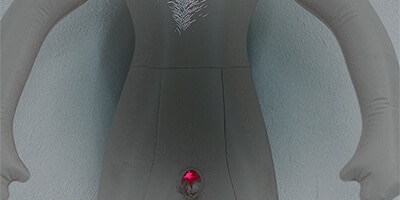
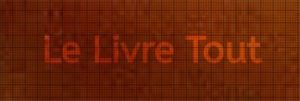

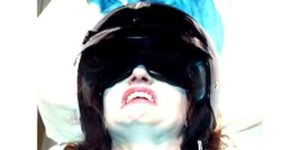
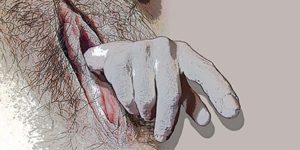
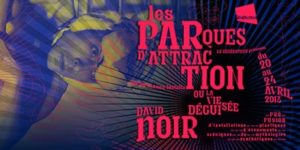
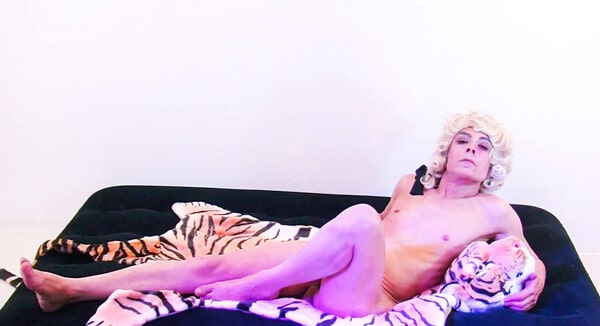



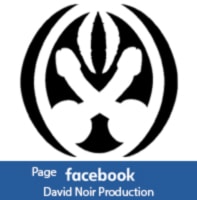
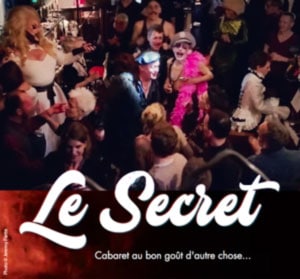
When I read the first sentence, I had the hope for a moment that you had become, in the most common sense of theatre, a programmer for a place. Let's follow this thread for a moment, and see what the text would then say about the dialogue between the programmer (who is not necessarily a creator today) and the creator today. Let's imagine that someone has the strength to extricate himself from the daily concerns of power (the programmer rarely manages his own money, but that of one or more others: he must be accountable, and justify his place by bending to the discourses of power to maintain the power of the big venues, or simply not to disappear for the smaller ones). Let's imagine that he gives priority, on a daily basis, to this quality of listening to himself. What can we say then about the fallout, the obviousness that follows: the programmer is also an artist, by the very essence of his approach.
I would refer you (and highly recommend meeting her, I actually spoke to her about your work) to Diane Scott's reviews, in particular the new Revue Incise published by the Théâtre-Studio de Vitry-sur-Seine on the question "What is a place?", and her very beautiful Cahier critique, published after a residency as a critic at the Off d'Avignon in 2009 (ed. L'Harmattan, coll. L'Art en Bref). She gives an explicitly Marxist critical reading of the world of theatre, put into historical, political and social perspective, which I never tire of, page after page. She talks about a new era that succeeded the era of the omnipotence of the director towards the end of the 1990s: the era of the omnipotence of the programmer. In particular, these super-programmers who, by launching Young Talent festivals, select for other programmers (who flock to the audience) the shows of young companies worthy of being programmed. Putting artists in competition with each other, ratifying a pyramidal organisation according to a self-justifying generational principle, a fear of risk in programming that pushes directors to function as an identifiable brand from which they are urged not to change, the proletarianisation of the artist: it is not difficult to observe the ingredients that lead to the astonishing status of the super-programmer.
I do believe that in the best of cases, where they reflect and develop a deep personal approach, these programmers (and I am also thinking of the multiplication of calls for projects, which testify to a shift in creative initiative on the part of the programmers) actually consider themselves to be artists. And perhaps this is all to the good: perhaps at last the creative initiative can be explicitly shared, right from the start of a creation.
But I make theatre, whose characteristic feature compared to other arts is the spoken word, orality, and by extension dialogue, and it is this rather that worries me: I don't see much dialogue between directors (and why only them, moreover, in an artistic team) and programmers. All I see is the written word, calls for projects on the Internet, files, files, stacks of files, a certain fear of meeting, proportional to the means at my disposal (in the almost ten years I've been directing, I can count on the fingers of one hand the programmers I've met for my creations who could offer me something other than a co-direction), and - something that Diane Scott deplores and tries to change - an astonishing poverty of dialogue in these meetings, placed under the sign of fear (everyone is afraid of everyone else), of political correctness, of wooden language, in short, of all the signs of an authoritarian conception of power relationships. (A brief digression on the word power itself: I can. Power is therefore by definition a means and not an end in itself).
But can it be otherwise? Are power relationships compatible with a sense of dialogue, the desire to talk to each other, and trust in oral communication? Or can the relationship between programmers and artists be seen as collaborative rather than authoritative? In other words, in exchange, sharing, openness... Perhaps I am a naive utopian. Some will blame my so-called youth and inexperience for this.
Perhaps I will keep this personal requirement you speak of, whether I am an artist, a director, a programmer or a simple troubadour, and I will put my desire for dialogue into practice.
Sometimes I am afraid of myself.
The future will tell.
I am indeed very far from being in the position of a programmer 😉 Not sure it's in my line. I may have come across a few of these "super-programmers" you mention in the 2000s. Diane Scott did several residencies at Anis Gras from what I've read. Indeed, this brings us together around certain places (she also talks about frasq in Gentilly). I share this description of the power that usually weighs heavily in this balance of artists/programmers. It's true that, having been lucky enough to be received by the Generator to create in rare conditions, I'm still sparing myself this contact for a while. But sooner or later, I'll have to go back there 😉